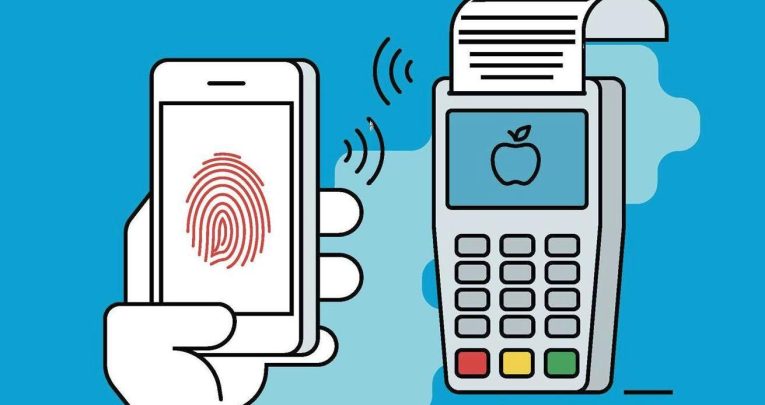Is It Time For Your School To Go Cashless?

Cashless payment systems mean notes and coins no longer change hands on the premises of many schools – with far reaching benefits for the whole community, says Kelly Clark

- by Kelly Clark

At Northgate High School, in Norfolk, all students need to pay for their lunch is their fingerprint.
A biometric payment system allows parents to load up an account – online or via revaluation pay points – so students can simply scan their finger or thumb at checkout, reducing queues. The algorithm-based scan reads between 50 and 130 points on the finger or thumb.
“This allows us to continue with the development of the school meal service and provides us with a more efficient, faster and ultimately better quality of service,” says head teacher Glyn Hambling.
“This system incorporates the latest technology and eliminates the need for students to carry cash throughout the day, reducing the risk of bullying. It is also biometric so there is no need for pupils to carry a card. A daily ‘spend limit’ of £5 is programmed into the system, but this can be increased or decreased on request.”
Student details are stored on a secure biometric controller within the school, which only provider Nationwide Retail Systems can access.
The school has also introduced an online payment system, in partnership with its cashless catering system, to enable parents to pay for trips and music tuition.
Modern thinking
Cashless payment was the reason national tutor agency Tutora was launched 18 months ago. Former primary school teacher turned tutor Scott Woodley was fed up with keeping spreadsheets of clients who owed money for lessons they didn’t have cash for.
Teaming up with technology analyst Mark Hughes, the pair set up the agency, operated from Sheffield, with 3,000 tutors around the country now automatically paid using the Stripe payment infrastructure.
“The reason we started the agency was that payments were a problem for tutors,” explains Mark. “It was a cash in hand business and so if a client cancelled, the tutor didn’t get any compensation. Scott had a spreadsheet because of the amount of parents who owed him money or wanted to pay next time or for a block of lessons in advance. It was a nightmare. This way, clients are charged 50% if they cancel and so tutors no longer have to worry about cancellations.
“Parents don’t have to worry about having cash to hand; it is all done online and they are billed and invoiced automatically.
“It’s the way the world’s going with fewer cash transactions.”
Tutors, none of whom now take cash payments, are automatically paid directly into their bank.
The company is constantly looking at developments in technology, with the hope of tutors being able to offer card payments as well as parents being able to pay online soon.
Precious time Going cashless can also save schools hours and money, in a time when budgets are ever stretched.
At Burnt Mill Academy Trust, in Essex, a member of finance staff has been able to move into a new role with the introduction of ParentPay across all six of its schools.
Finance officer Dawn Warner used to spend ten hours per week manually putting receipts onto the computer system, collecting cash and visiting the bank. In 2011, however, the Trust went completely cashless.
“Everything is done automatically now,” observes Dawn. “Receipts go on the system and money goes into the bank without our input. It means I can now focus my time on other things.”
The schools use the ParentPay card system, enabling parents to pay for trips and meals for their children online.
“From a parent’s perspective, it’s amazing,” says Dawn, “You can allocate an amount of money and that’s all the child is able to spend; they can eat every day without breaking the bank. The system even enables parents to go online and see what the money has been spent on, which means they can keep an eye on what their child is eating at school. It gives parents more control.
“The system also eradicates bullying. When I was at school, I was from a low income family so had to get a dinner ticket. Our free school meal students have the exact same card as their peers; they no longer stand out.
“It’s madness for schools not to go cashless. One of my sons’ schools still uses cash and there are always issues with money; every single term there are discussions over who has paid what. The system safeguards the school and parents. For a small outlay – which would be spent on admin anyway – it makes sense to go cashless.
“We have looked at other options, but the card system works for us and is a low cost option.”
Learning curves
ParentPay helps 6,000 schools like these to save administration time and costs, plus two million parents to pay schools quickly and securely – but says only 40% of schools have so far taken the plunge.
Clint Wilson, CEO of ParentPay, says the company liaises with schools to ensure the most relevant and current systems are available. “We offer schools a cashless white paper and best practice checklist to help define what options are best for them based on their needs,” he comments.
“In future, parents will be able to schedule meal payments, ensuring school meal payments are on time, and be able to top-up accounts by faster payments and standing orders, cutting out the need to log-in and pay by card on a weekly basis.”
ParentPay has also introduced a prepaid debit mastercard, nimbl, for eight to 18-year-olds and a smartphone app to manage pocket money or allowances.
“This enables parents to provide children with a way of learning more about how to spend and save responsibly,” says Clint. “it’s ParentPay outside the school gates!”
Meanwhile, sQuid offers schools such a level of support with its range of cashless payment options, it sees itself as an extended part of the finance office.
“Ultimately, what sits at the heart of our operation is a regulated system which protects customers’ money,” explains sQuid’s Stephen Hedge. “We process all transactions so don’t involve any third parties. It takes away the burden of managing transactions on site. We handle all of the payments to the school, but also any refunds which need to be paid to parents. We feel that’s a very important part of the service we offer.
“What we are most proud of is our engagement with schools. They come to us with their requirements and issues and we suggest solutions and give them support all the way through the process. We approach it in a consultative way with a personal approach, with each school having an account manager who monitors the performance for the school. “We try to become a part of the school’s team.”
9 reasons to go cashless
- Increased speed of service reducing queuing times in canteens
- Increased uptake of free school meals
- Anonymity can reduce bullying
- Online payments
- No need to carry cash, preventing loss/theft
- Automatic alerts stop students purchasing allergy trigger food
- Students learn about important lifestyle control by monitoring their own accounts
- Reporting facilities help decrease wastage and improve the overall efficiency of the meal service
- Parents are able to monitor spending and eating habits
ParentPay market research found only 40% of schools in England & Wales use cashless online payment system (cashless research 2014/15 carried out by ParentPay, based on 15,000 parents responses and 1,100 schools)







